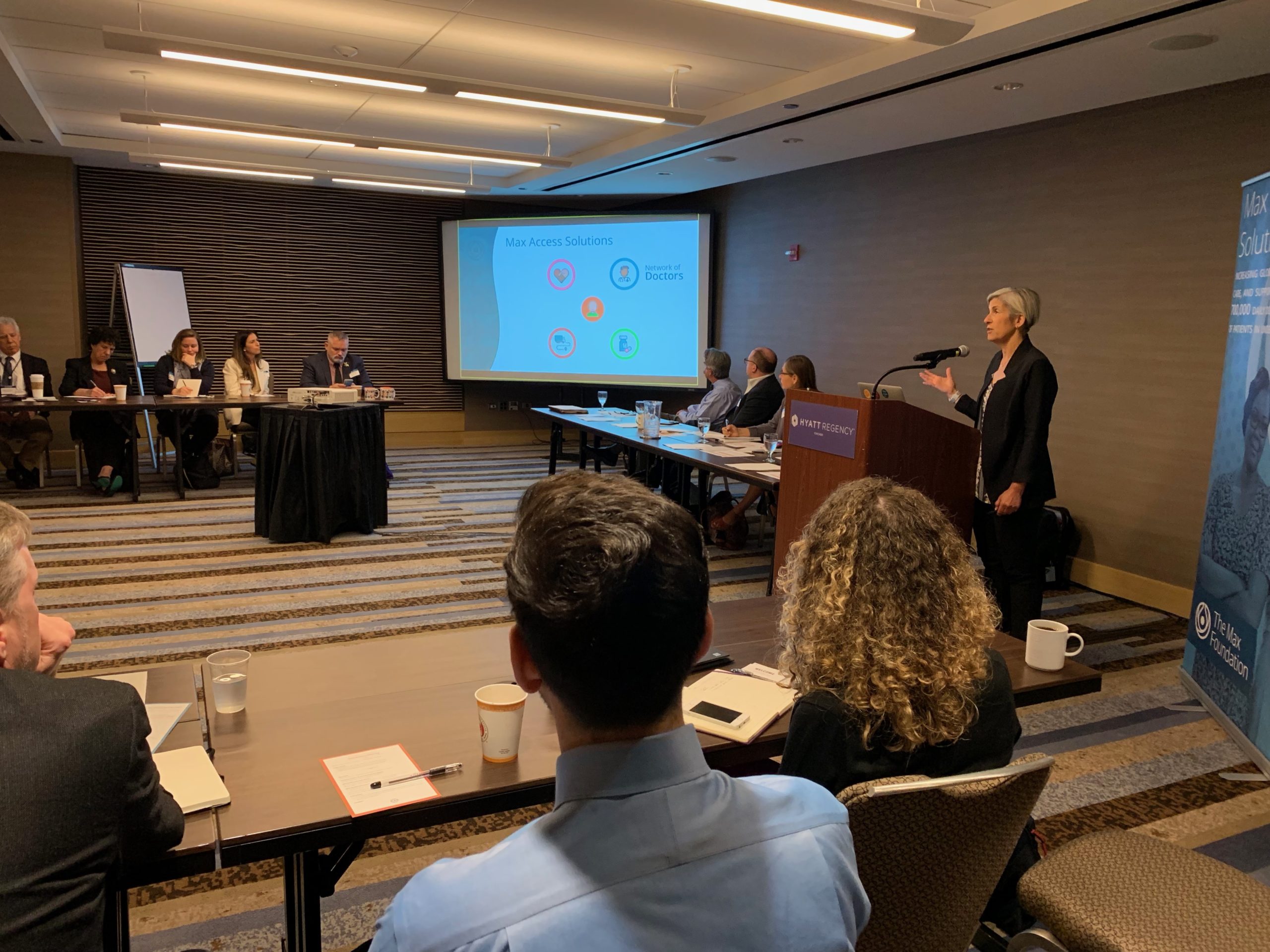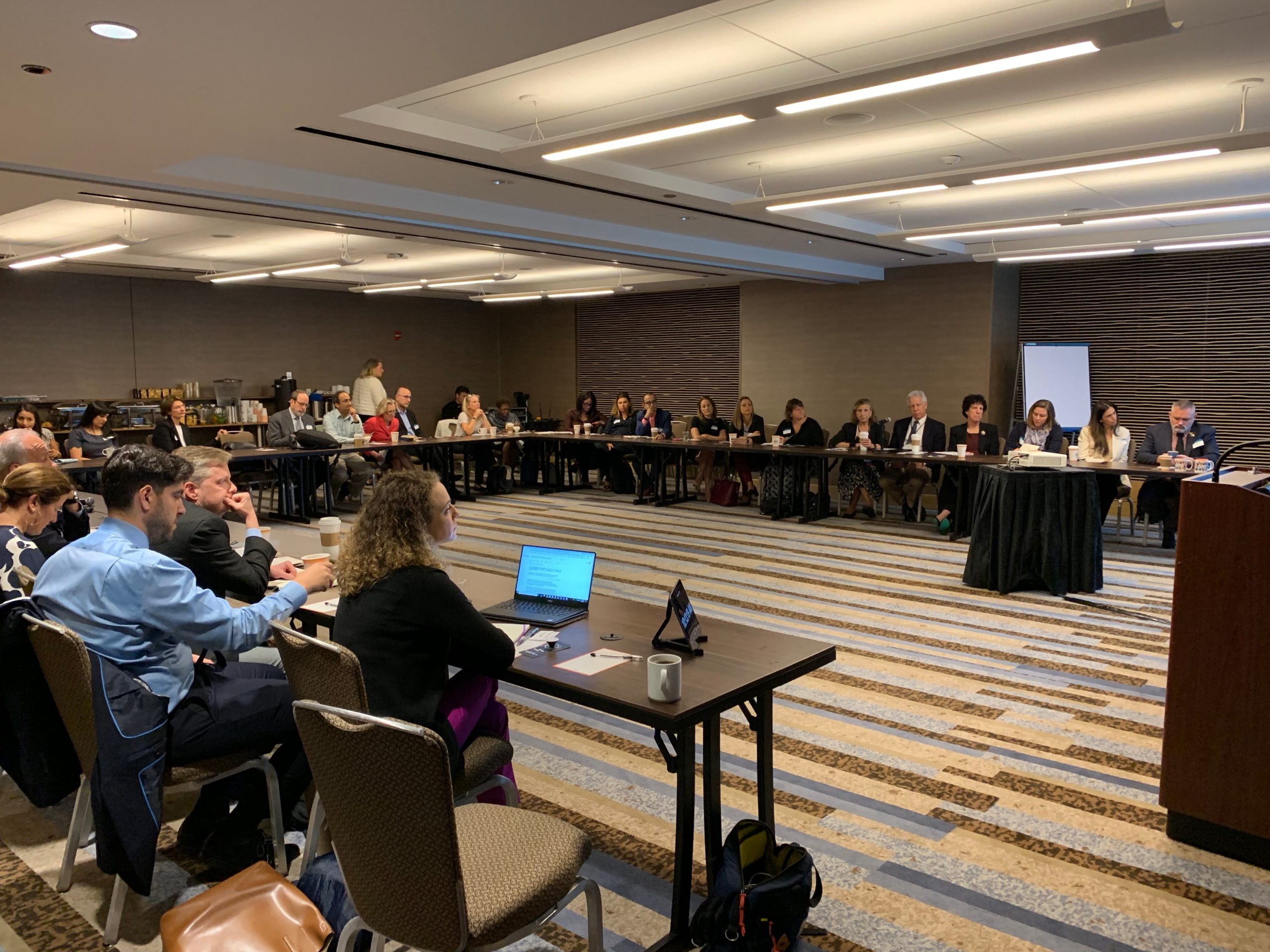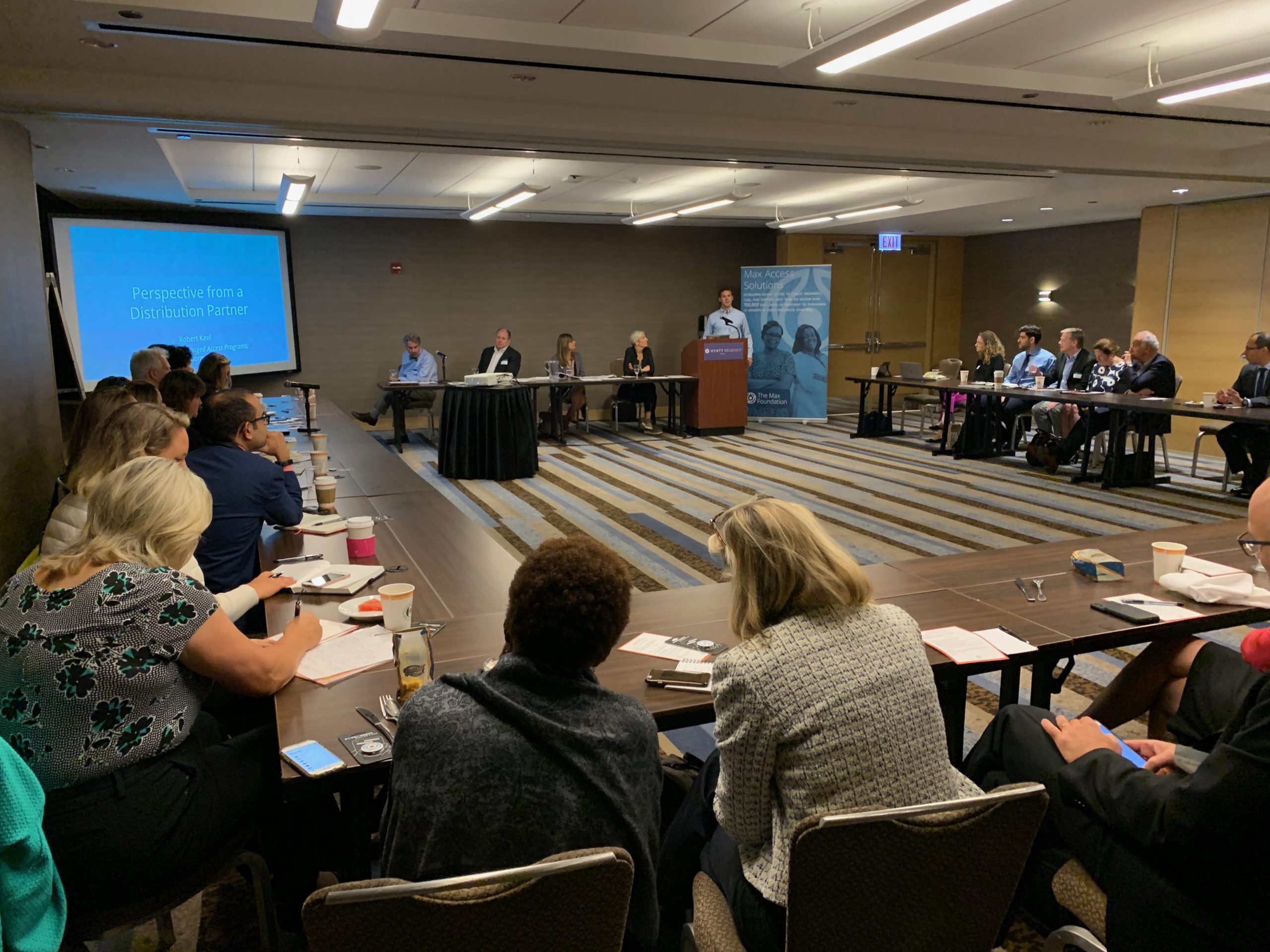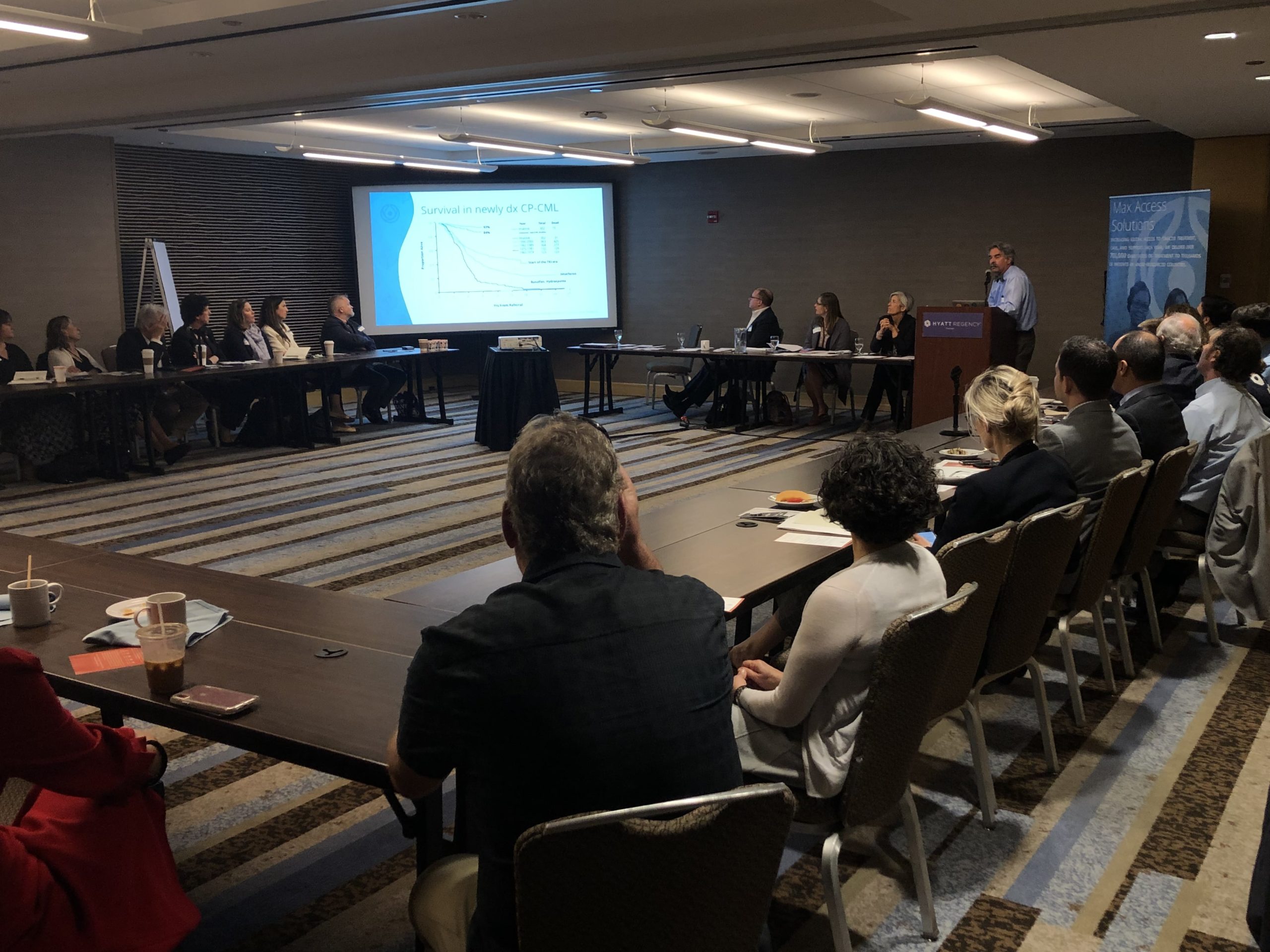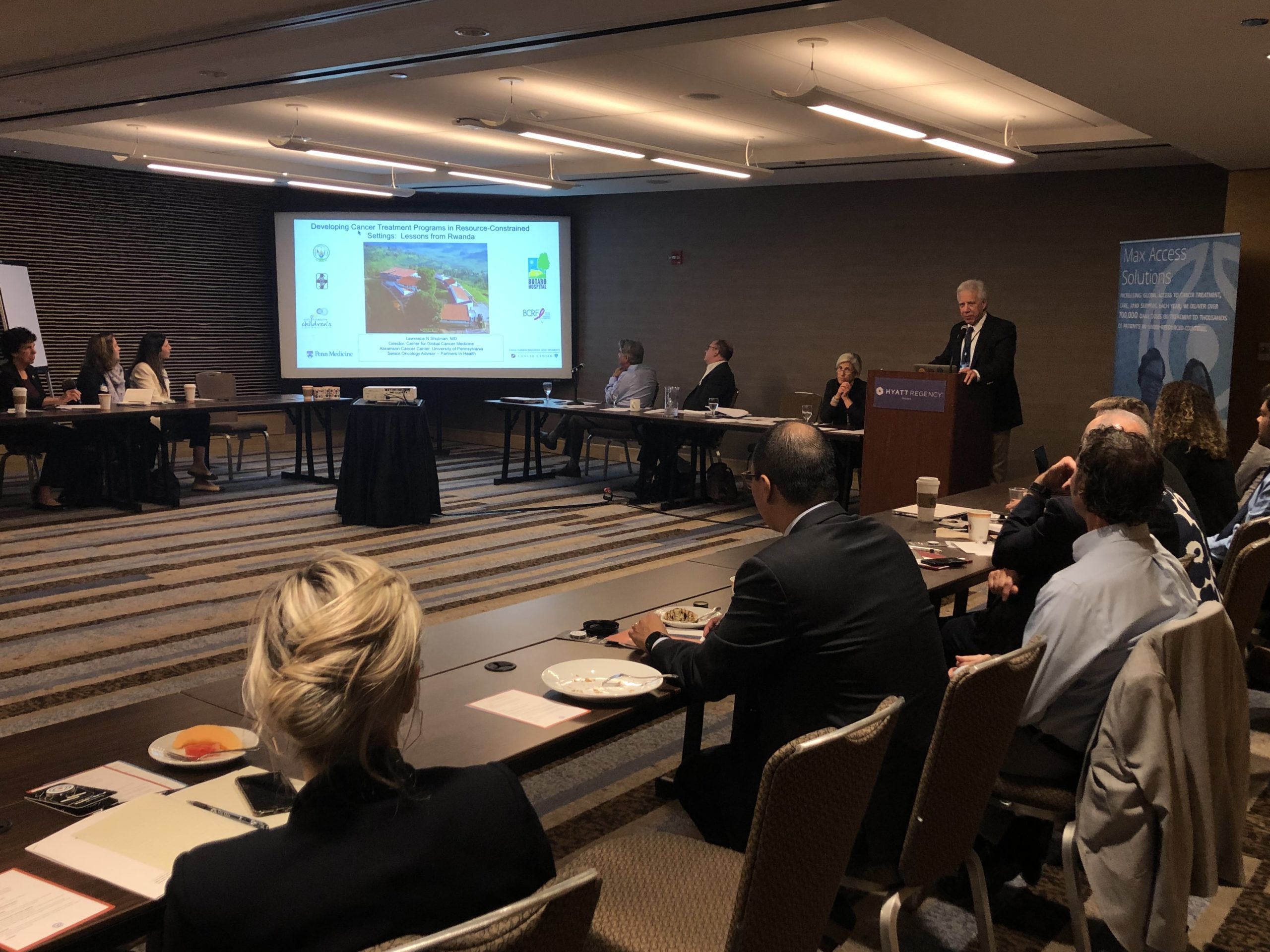The Max Foundation Stakeholder Meeting
On Friday, May 31, over 45 physicians, corporate partners, academic leaders, and strategic advisors met together at our inaugural Stakeholder Meeting held during the American Society of Clinical Oncology (ASCO) Annual Meeting in Chicago.
We want to express our appreciation for the five pharmaceutical companies who engage with us and trust The Max Foundation with their life-saving products as partners of our Humanitarian PACT: Novartis, Takeda, Bristol-Myers Squibb, Incyte and Pfizer.
In her opening remarks, Pat Garcia-Gonzalez, CEO, aptly shared,
We do [provide access] because we can, and because we can, we should. The core of our thinking is there are patients who can be treated. As a community, we have a responsibility to treat those patients.”
Introduction to Max Access Solutions
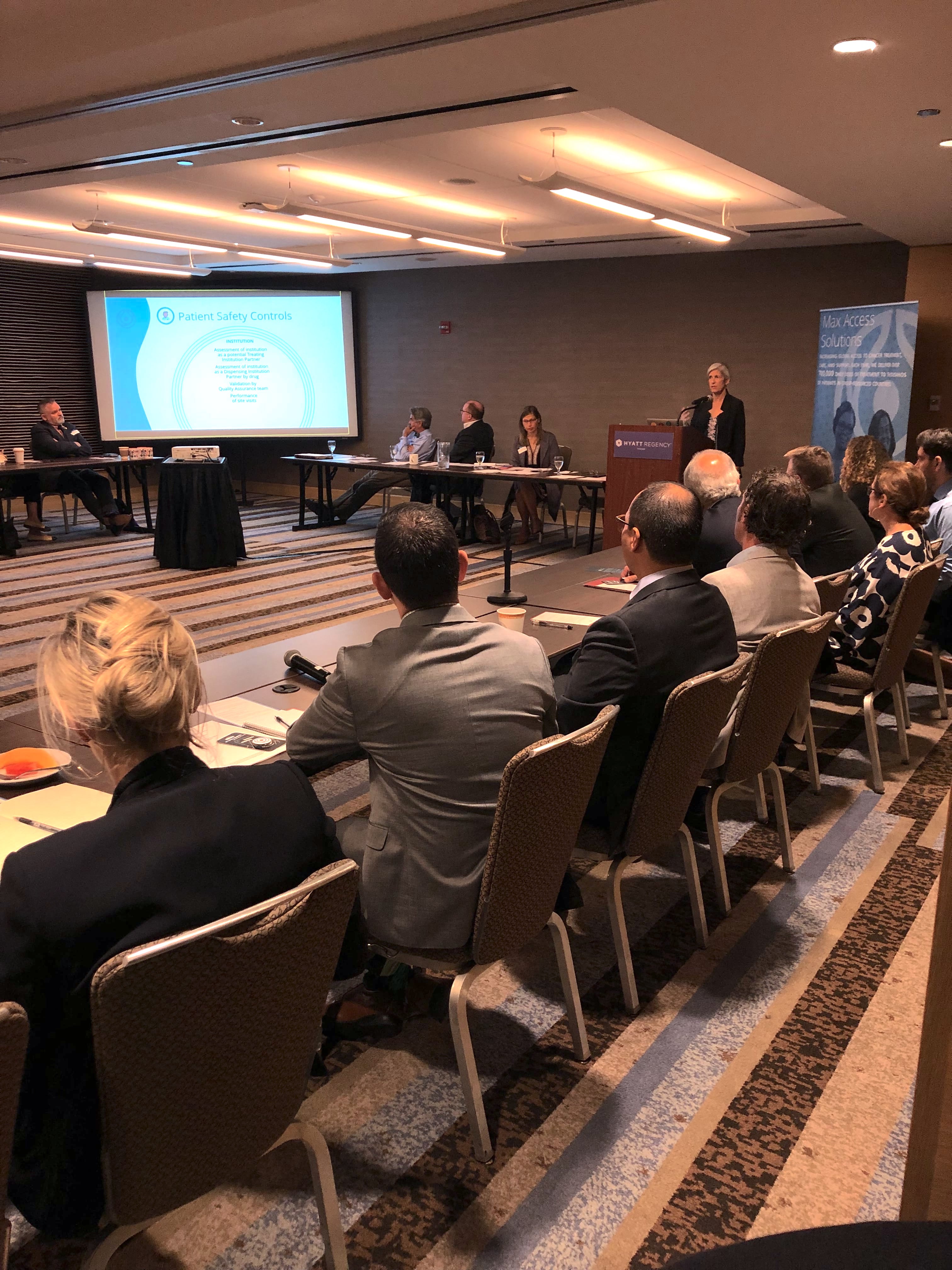 People living with a cancer diagnosis in low- and middle-income countries can now access treatment through our innovative model – Max Access Solutions. Pat Garcia-Gonzalez provided an insightful overview of the four pillars of our Max Access Solutions model and how current collaboration agreements are structured within our Humanitarian PACT.
People living with a cancer diagnosis in low- and middle-income countries can now access treatment through our innovative model – Max Access Solutions. Pat Garcia-Gonzalez provided an insightful overview of the four pillars of our Max Access Solutions model and how current collaboration agreements are structured within our Humanitarian PACT.
Highlights of Outcomes, Impact, and Partnerships
Dr. Jerry Radich, Executive Board Member, The Max Foundation, presented historic and current chronic myeloid leukemia (CML) patient data demonstrating remarkable outcomes in patient survival rates. In CML specifically, people in low-income settings benefitting from our programs are living just as long as those in high-income settings, demonstrating how our model is clearly closing the cancer divide.
This blows my mind. The survival of people [in low- and middle-income countries] is indistinguishable from Europe and the United States. This program can actually give people the same outcomes as they would receive here which is astonishing… this is really life-changing.”
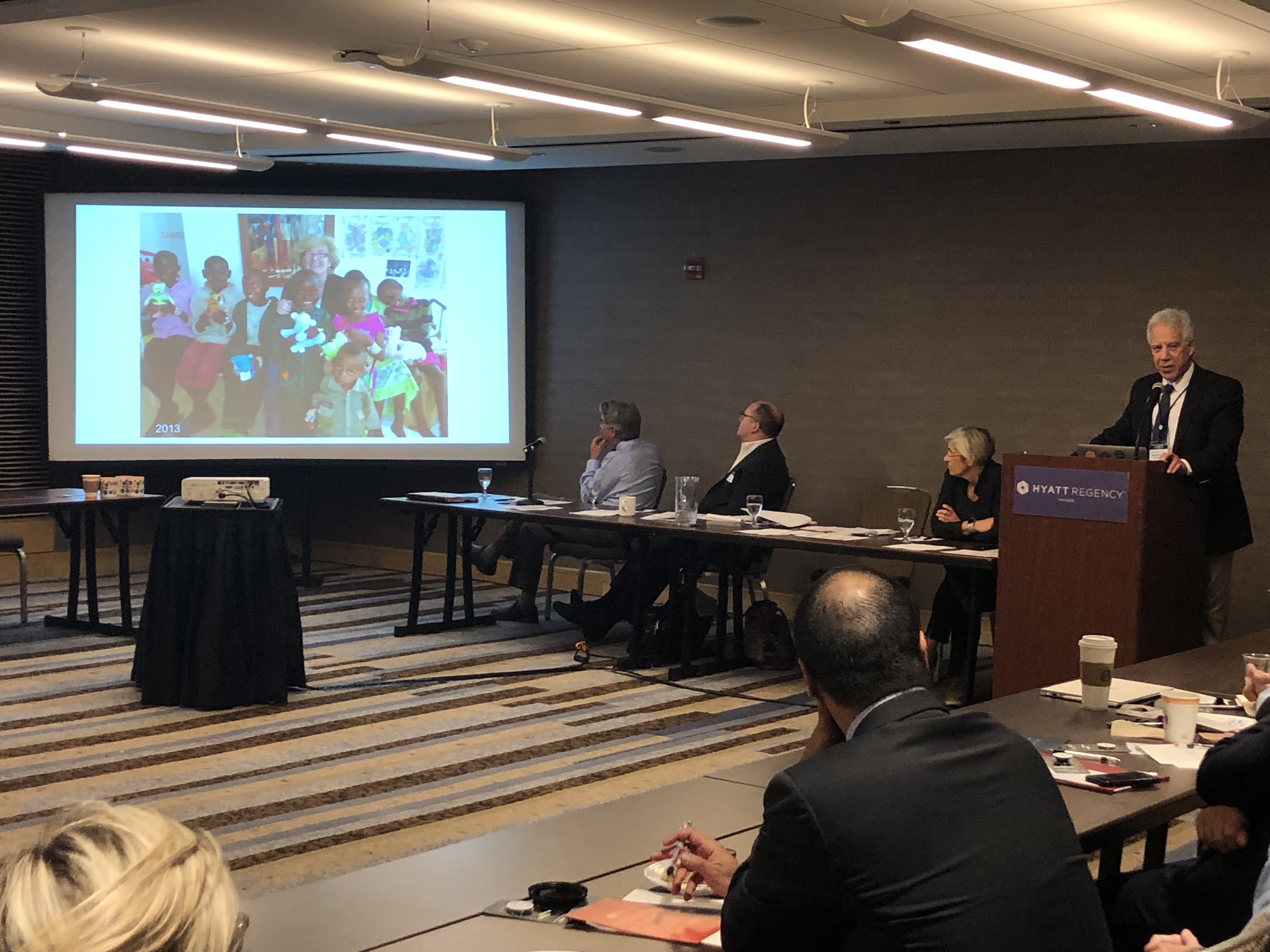 Dr. Larry Shulman, Strategic Innovation Advisor with The Max Foundation, presented on Global Cancer Medicine spotlighting Rwanda stating
Dr. Larry Shulman, Strategic Innovation Advisor with The Max Foundation, presented on Global Cancer Medicine spotlighting Rwanda stating
The only measure of success is patient survival. At the center of all this are human beings.”
Without the partnership of The Max Foundation and Novartis, we would never have been able to treat these patients.”
Geoff Cook, Global Head, External and Patient Advocacy, Novartis Oncology also noted:
We need, in partnerships with people in this room, to figure out together how can we work together in these markets where there are no resources, there is no commercial opportunity, but there is tremendous unmet need to actually make a difference for patients and fulfill our goal of treating cancer in as many places as possible.”
This year, The Max Foundation strategically formalized our Partners Framework detailing out various levels of engagement opportunities within the context of the four pillars of the Max Access Solutions model. We know that our patient-centered model is unique and highly credible. Our hope is to engage more partners across the country by providing mutual benefits in a collaborative effort to reach our full potential – reaching more patients, in more disease areas, in more places around the world.
To close our session, Erin Schwartz, VP, Global Engagement, inspiringly made a call to action for every person in the room to be on our ‘access team’ and tell two other people during the conference that yes, it IS possible to treat cancer patients in low- and middle-income countries! Together, we can break the stigma, break the myth, and say “this is possible.”
Interested in learning more about opportunities to partner with The Max Foundation and learn more about our new Partners Framework? Contact Erin Schwartz, VP of Global Engagement today.


